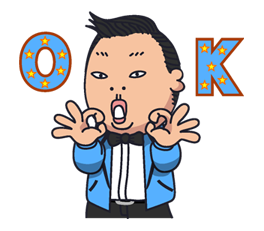
"OK" is one of the most frequently used and recognised words in the world.
We generally spell it OK - the spelling okay is relatively recent, and still relatively rare.
Ordinarily a word so odd, so distinctive from others, wouldn't be allowed in a language to begin with. As a general rule, a language allows new words only when they resemble familiar ones.
On 23 March 1839, OK was introduced to the world on the second page of the Boston Morning Post, in the midst of a long paragraph, as "o.k. (all correct)".
How this weak joke survived at all, instead of vanishing like its counterparts, is a matter of lucky coincidence involving the American presidential election of 1840.
One candidate was nicknamed Old Kinderhook, and there was a false tale that a previous American president couldn't spell properly and thus would approve documents with an "OK", thinking it was the abbreviation for "all correct". Both these facts served to make people remember "OK".
Within a decade, people began actually marking OK on documents and using OK on the telegraph to signal that all was well. So OK had found its niche, being easy to say or write and also distinctive enough to be clear.
But there was still only restricted use of OK. The misspelled abbreviation may have implied illiteracy to some, and OK was generally avoided in anything but business contexts, or in fictional dialogue by characters deemed to be rustic or illiterate.
Indeed, by and large American writers of fiction avoided OK altogether, even those like Mark Twain who freely used slang.
But in the 20th Century OK moved from margin to mainstream, gradually becoming a staple of nearly everyone's conversation, no longer looked on as illiterate or slang.
US President Woodrow Wilson, early in the 20th Century, lent his prestige by marking okeh on documents he approved. And soon OK was to find its place in many languages.
But what makes OK so useful that we incorporate it into so many conversations? What OK provided was neutrality, a way to affirm or to express agreement without having to offer an opinion.
And yet, despite its conquest of conversations the world over, there remain vast areas of language where OK is scarcely to be found.
You won't find OK in prepared speeches. Indeed, most formal speeches and reports are free of OK.But OK still rules over the vast domain of our conversation.
Hi! I am a robot. I just upvoted you! I found similar content that readers might be interested in:
http://www.bbc.com/news/magazine-12503686
Hi )